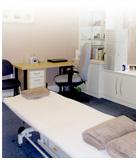The Value of Sleep
We all know that a good night’s sleep is often the best possible way to cope with everyday stress, problem solving and to recuperate from an illness.

Research has shown that during NREM (non rapid eye movement) or dreamless sleep, the body repairs and regenerates tissue. Muscle and bones are built and the immune system appears to be strengthened. At this time, the parasympathetic system is more active. It is involved with digestion, sleep, and other activities that occur primarily during sleep cycles. During sleep your body is regenerating from the stress of daytime activity. Some experts believe that finding ways to get more NREM sleep could reduce the aging process. However, as we get older we get less and less of this precious sleep.
REM (rapid eye movement) or dreaming sleep is thought to act as a psychological safety valve. It helps us through unconscious events and many emotional issues. This could explain why people become forgetful and confused as dream sleep may help to consolidate memory.
Why the mind should generate such fantastical images is still unknown. Some researchers believe that dreams are random bursts of nerve cell activity in the brainstem and others believe that dreams clearly relate to the dreamers life and that emotional connections between past and present events can help to resolve issues.
How much sleep do we need?
This decreases with age and depends on the individual. Some researches claim that we need as much as 91/2 – 10 hours of sleep a night or we risk chronically under-functioning. Most experts believe that 7-8 hours a night is adequate for most people but not lees than 6 hours to avoid feeling tired.
How to avoid a bad night’s sleep:
- Avoid large meals and stimulants such as smoking, alcohol and caffeine at least two hours before bedtime
- Don’t nap late in the afternoon
- Make sure the temperature in your bedroom is not too hot or too cold
- If early morning light disturbs you, invest in some heavy, lined curtains or wear a mask
- Keep your bedroom for sleeping, if you can’t sleep and need to read a book or watch TV, go into another room
- Try to keep your mind off any worries, you can’t do anything about them while your in bed and you’ll be able to cope with them better after a good night
- Keep a note pad by your bed, if you have things on your mind, write them down and then deal with them until the morning
- Learn some relaxation techniques like yoga
- Don’t go to bed hungry; try a milky drink, a wholemeal biscuit or a banana which are thought to reduce restlessness
- Try doing some aerobic exercise which reduces stress hormone levels and may promote deeper sleep
- Take a hot bath with some relaxing lavender oil which can have a wonderful calming effect
- Avoid going to bed angry with a partner, family member or friend, sort out your issues before bedtime by talking
- Don’t watch anything on TV that might upset or frighten you
- Avoid any liquids at least two hours before bedtime; this could reduce the risk of waking for the toilet
We all have to cope with a certain amount of stress in our lives, some more than others. A good night’s sleep can sometimes be the best remedy for coping with those daily challenges.
Sleep tight…
Caritas School
Looking for the Caritas School of Reflexology?
Therapists room

If you are a self employed holistic therapist and want to become part of the Caritas natural health team, we have two well equipped and beautifully designed rooms for hire.

